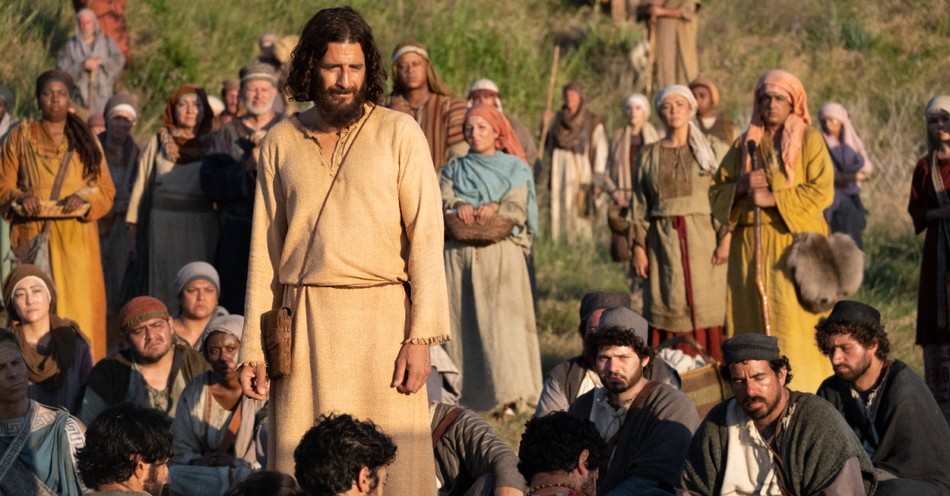The Bible is easily one of the most adapted books in film and TV history. Some adaptations play fast and loose with the story. Others follow the text so closely there’s not a line of invented dialogue. Some tell the story through animation, others through human actors (and a few mix and match). While Bible movies tend to get the most press, there are some surprisingly good Bible TV shows out there.
The following provides several Bible TV shows, cartoon series, and a few longer Bible movies that most audiences will watch like a TV show.
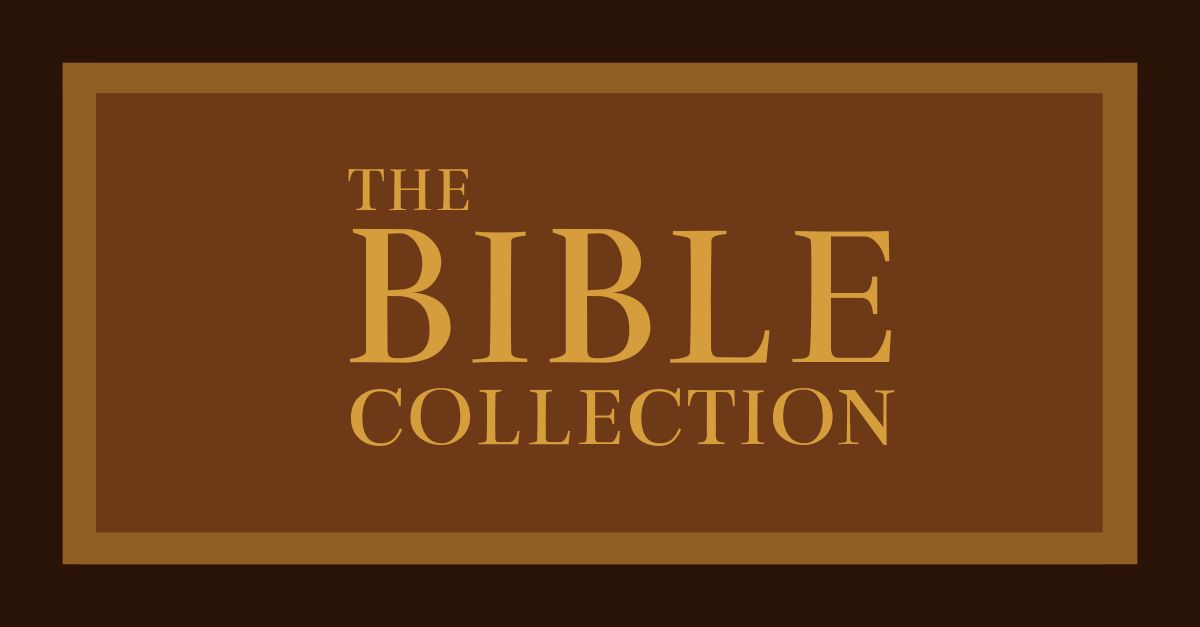
1. The Bible Collection (1993-2003)
Produced by the company Lux Vide, these 17 films each cover an important Bible character. Many of these episodes had well-known actors or crew working on them, so they feel like very well-made TV movies. At the same time, some of them were long enough to be released over several episodes (the Joseph movie takes two 90-minute episodes). So, this series feels like a TV show or collection of several TV miniseries.
Some episodes lean more into fiction than others. For example, the Samson and Delilah episodes give Delilah a full-fledged backstory at the Philistine king’s court, making her a pawn from the moment she meets Samson. However, these kinds of additions are pretty standard for any Bible movie or TV adaptation that isn’t a cartoon narrating the Bible text. The fact that different directors made different episodes also creates some fun variety. For example, the episode on Genesis imagines a group of nomads telling each other the stories of Adam, Abraham, and Noah.
A great mix of entertaining, thought-provoking, and consistently high-quality adaptations of Bible stories.
Further Reading: 9 Bible Stories You'll Never Hear in Church
Photo Credit: fan poster recreation by G. Connor Salter
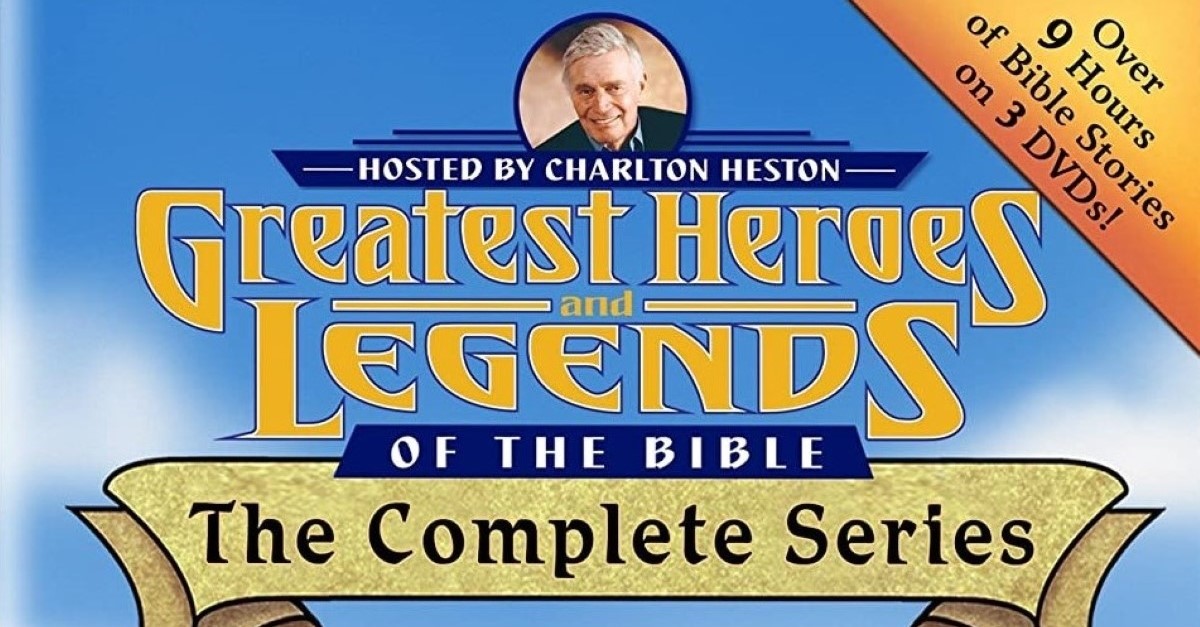
2. Greatest Heroes and Legends of the Bible (1998)
Bible cartoons for kids are easy to find, but good-quality ones aren’t necessarily easy to find. Furthermore, many feature elements (singalongs, modern-day references) intended to be charming but ended up clunky. Greatest Heroes and Legends of the Bible sums up the classic approach to Bible cartoons and does it better than most. Over 13 episodes, each featuring an introduction by Charlton Heston, this Bible series covered some of the Bible’s most iconic stories. David and Goliath. Jonah and the Whale. The Acts of the Apostles. Even three episodes on different aspects of Jesus’ life (his birth, his miracles, and his last supper). Heston’s introductions summarize each story and its most important lessons before the cartoon begins, making sure kids understand the message. Once the animation starts, the action is narrated by a character named Simon, who doesn’t engage with the characters but follows their paths, commenting on their progress, and occasionally sings songs connected to the story. This approach gives kids both a Mr. Rogers-style narrator to link each episode and a younger character to guide them through the story.
The animation may seem old-fashioned, but the series is fun, compact, and easily accessible.
Further Reading: 6 Excellent Bible-based Children's Series on Amazon Prime
Photo Credit: GoodTimes Home Video/Tundra Entertainment
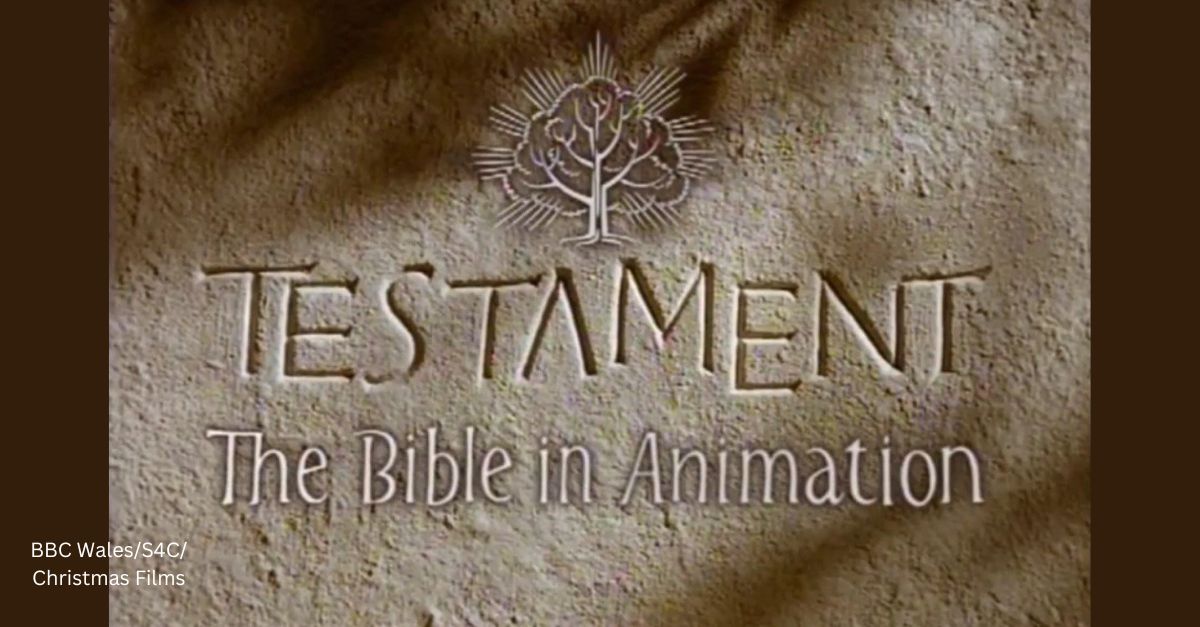
3. Testament: The Bible in Animation (1996)
While Greatest Heroes and Legends is a fun introduction to Bible stories, it’s not the only way to tell them in animation. This TV show has three things that make it more interesting than the average animated Bible series. First, each episode is under 30 minutes, short and sweet. Second, it goes directly into the action, unlike Greatest Heroes and Legends of the Bible and similar shows. This makes The Testament a great choice for children who are turned off by the “here’s a narrator who tells you everything up front” approach. Third, the animation style is great and comes in a variety of styles. Some episodes are traditional animation, and others are stop-motion.
The show is also a great way to introduce kids to The Miracle Maker, a movie by the same studio that may be one of the best Jesus movies ever made.
Further Reading: 10 Christian Series We Need to Reboot
Photo Credit: Christmas Films/S4C/BBC Wales
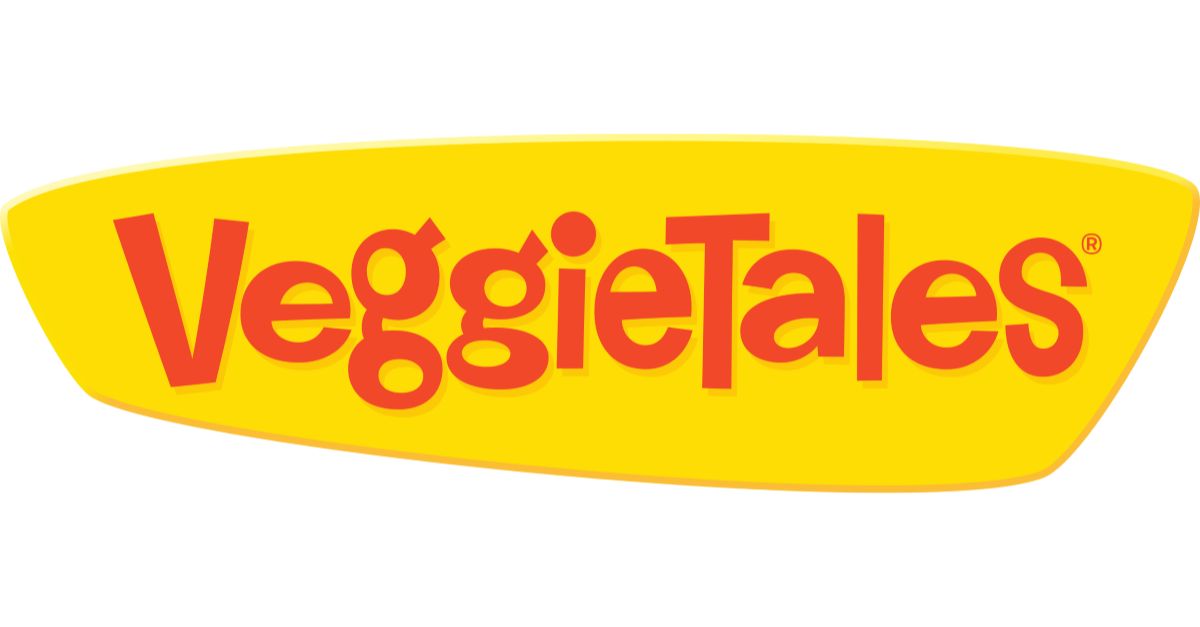
4. VeggieTales (1993-2022)
VeggieTales has gone through some surprising iterations—from the original video series to various spinoffs—some closer to the Bible than others. While, as of this writing, it appears the VeggieTales franchise is moving on without its original creators, the series’ classic installments and The VeggieTales Show are still easily available. They continue to be some of the best Christian content for kids available today. The episodes combine dramatizations of Bible stories with variety show elements—silly songs, games, and behind-the-scenes antics where characters explain Christian lessons to each other. The jokes combine silly humor for kids with occasional jokes (Monty Python references, etc.) that older viewers will also enjoy.
Viewers desiring something equally fun but with more facts about the Bible may enjoy Buck Denver Asks What’s In the Bible?
Further Reading: 4 Things Parents Should Know about the New VeggieTales Show
Photo Credit: Big Idea Entertainment
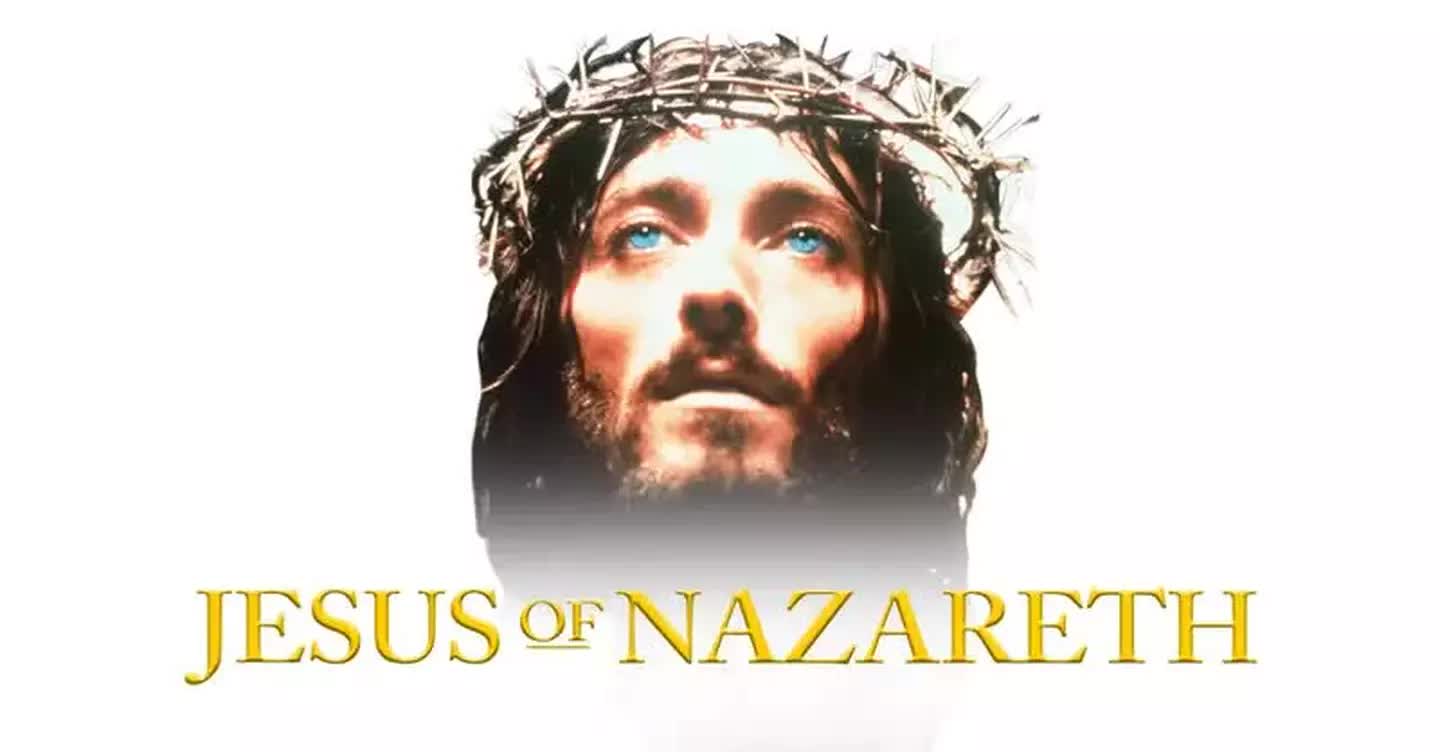
5. Jesus of Nazareth (1977)
More recent Jesus TV shows have used more cinematic techniques and portrayed other sides of Jesus’ personality (the righteous anger, the unconditional love, etc.). However, it’s hard to name a more iconic Bible TV show. Yes, there are hints of theatrical camp. Yes, it’s a miniseries suggested by the Pope and directed by a Roman Catholic filmmaker, which means there are unmistakable Roman Catholic elements (Jesus’ mother, Mary, comes across as more an ideal than a person). However, if The Greatest Story Ever Told is the most reverent Jesus movie ever made, Jesus of Nazareth is the most reverent Jesus miniseries ever made.
Various famous actors (from James Earl Jones as one of the three Wise Men to Christopher Plummer as King Herod) appear, but they fit their roles and never seem like celebrity cameos. Robert Powell gives a great Jesus performance, seeming ethereal yet gentle, authoritative yet endearing. Yes, this Jesus is still on the European side, as are most of the cast. However, the script makes a much stronger effort than earlier films or TV shows to show Jesus’ Jewish context. Joseph consults a rabbi when he thinks Mary has cheated on him. Jesus spends time in the synagogue as a boy, establishing that he seems like an upstanding Jewish boy who won’t create any waves. When he visits his local synagogue as an adult, reads a Messianic prophecy, and claims he has fulfilled it, viewers feel the other characters’ shock. He may not look like a Jewish Jesus, but he certainly lives in a Jewish culture. Jesus of Nazareth clearly shows why Jesus’ claim to be everything the Jews hoped for was an incredible statement; something that would change everything if people believed him.
Further Reading: Why Is Jesus Christ Unique?
Photo Credit: ITC Entertainment/RAI
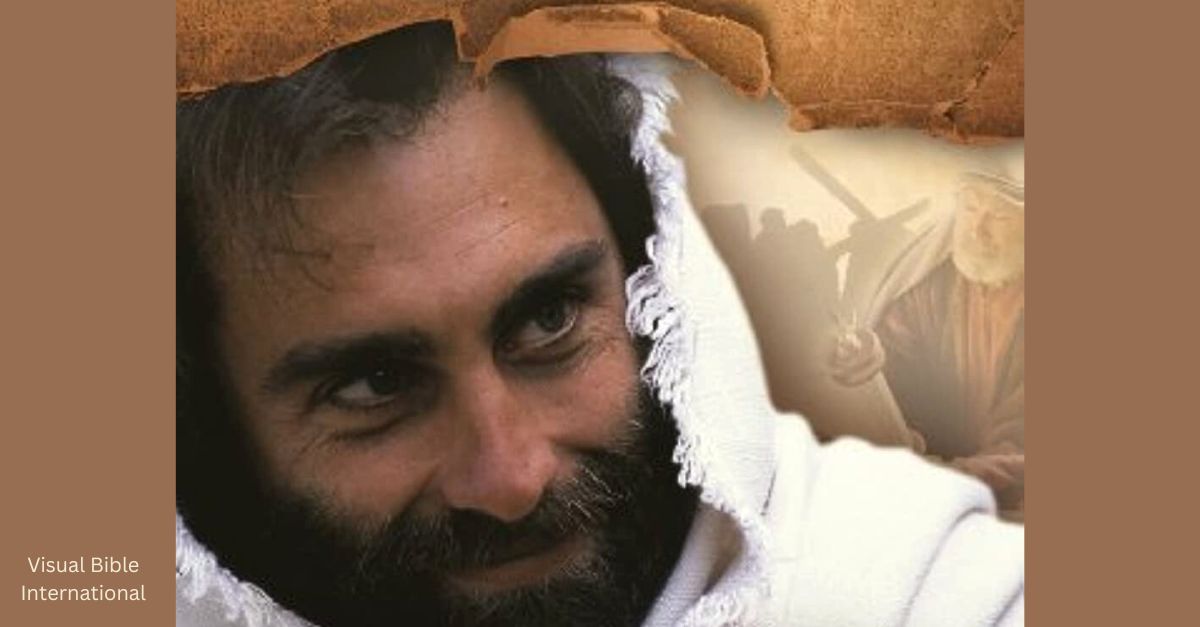
6. The Visual Bible: Matthew (1993)
The first of several projects where a book of the Bible’s text is used verbatim, The Visual Bible: Matthew may not be a TV show or miniseries, but most viewers will watch it that way. At a little over four hours long, made in a style that emphasizes characters over big special effects, it’s not easy to watch in one sitting. Fortunately, its narration (and little verse numbers appearing in the corner for key moments) makes it easy to match the scenes to Matthew’s verses. Viewers can easily stop the movie and return to it the next day.
The film alternates between an older Matthew telling his story to scribes and younger believers and the scenes Matthew describes. The movie’s adherence to the biblical text makes it a great resource for Sunday School classes or families introducing their kids to the Bible. It’s also worth viewing because it took a further step in how Bible TV shows and movies portray Jesus. In Jesus of Nazareth, Robert Powell portrays Jesus as gentle but otherworldly. In The Visual Bible: Matthew, Bruce Marchiano portrays Jesus as approachable, cheerful, and even gleeful. Marchiano has gone on to play Jesus many times since (as of this writing, he has appeared as Jesus in over 10 films and may have the world record). However, this is the first movie where he played Jesus, creating a new template that continues in shows like The Bible and The Chosen: a Jesus who can’t help but radiate love for everyone.
Viewers who enjoy this film may also enjoy The Gospel of John (sometimes released as The Visual Bible: John), which covers perhaps the least adapted of the four gospels.
Further Reading: 9 Interesting Points to Remember from the Book of Matthew
Photo Credit: Visual Bible International
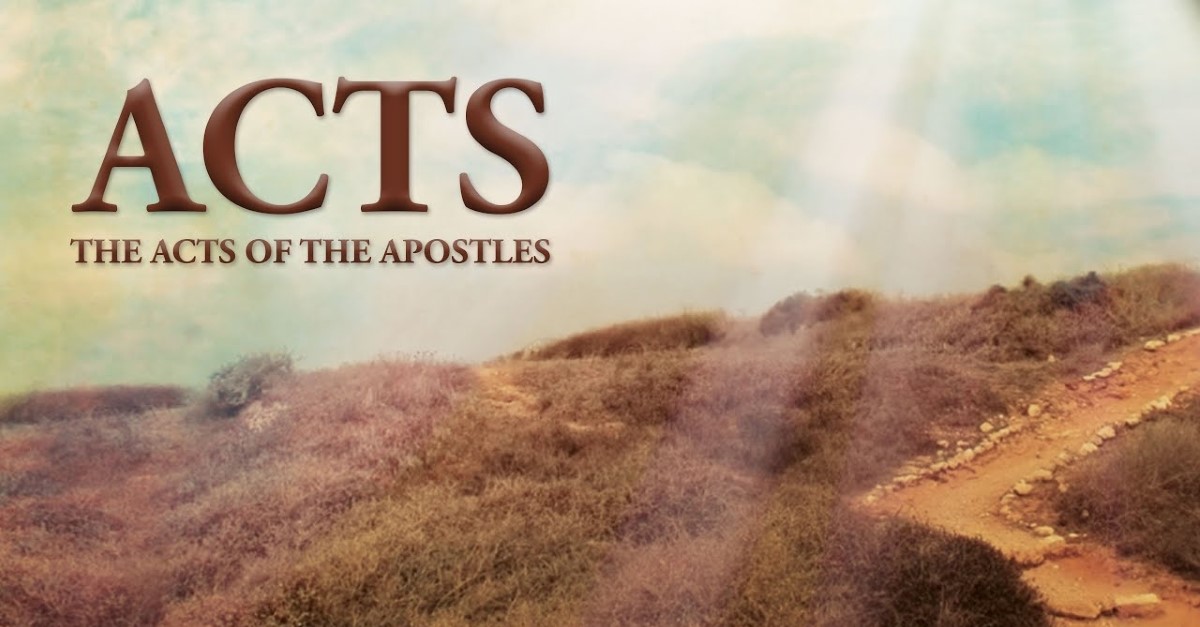
7. The Visual Bible: Acts (1994)
There have been countless live-action TV shows and movies about Jesus, but not many about the New Testament’s later sections. It wasn’t until 2018 (Paul, Apostle of Christ) that a movie appeared focusing on the most famous apostle. This movie, a direct follow-up to The Visual Bible: Matthew, rectifies that issue. Using the same template (and a few brief scenes of Marchiano as Jesus appearing to the apostles), it depicts a Biblical character telling the story years later. This time, Luke (played by Dean Jones, who later played John in the interesting film St. John in Exile) is the narrator. He tells the story while traveling on a ship to Rome, hoping to reconnect with Paul (currently living in Rome between prison sentences). Luke tells the story to fellow passengers as they travel, and the film alternate between Luke’s interactions and the scenes he describes. Following a biblical text verbatim, the movie takes just over three hours.
The dialogue only deviates from the biblical text in the framing story about Luke (and there, it’s limited to tiny moments like characters thanking Paul for being the ship’s doctor). Even there, it mostly highlights ideas implied in the text: the early Christians strived to be loving servants to all, and their actions and words affected even skeptical people. While Paul understandably becomes more and more of a lead character as the plot continues, the movie ensures that each apostle mentioned is interesting. The movie clearly communicates this is a story about the apostles, not just the most famous one.
An entertaining and educational experience.
Further Reading: 10 Things to Know about the Acts of the Apostles
Photo Credit: The Visual Bible International
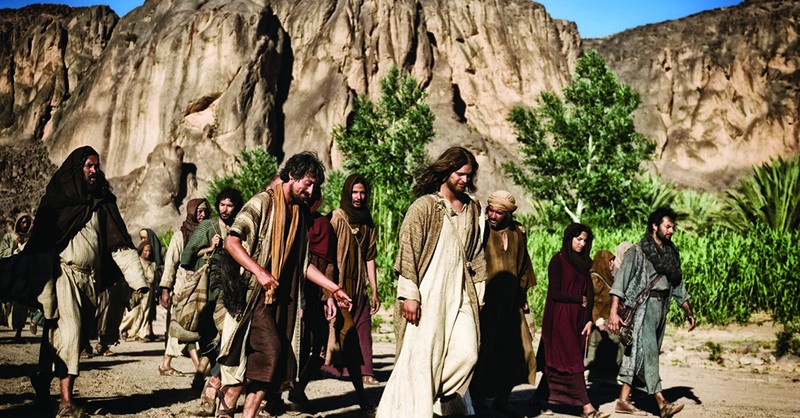
8. The Bible (2013)
Most Bible TV shows or movies focus on one or two Bible stories that easily fit together. John Huston’s movie The Bible: In the Beginning… is one of the few movies that tells several consecutive Bible stories without skipping anything, and even it invents details (like Abraham walking through Sodom’s ruins) to make events feel connected. Others (like The Bible Collection) tell Bible stories as standalone stories but use a visual style that makes them feel like a connected series.
The Bible tells the story from Genesis to the four Gospels with a coherent story arc. The 10 episodes cover the important stories, sometimes making clever moves (like Noah telling his family the Garden of Eden story while they’re in the ark) to tell stories at a brisk pace. All the major moments get covered, with some creative additions to make it an adventure story, but rarely straying far from the biblical text. Narration helps connect events (what happened between Daniel serving Nebuchadnezzar and Daniel serving Darius, etc.). The story feels a bit like a cliffhanger since it ends before the apostles carry the message onward (viewers who want that story can check out the sequel miniseries, A.D. The Bible Continues). However, it still succeeds where many Bible TV shows have faltered, presenting the Bible’s most famous stories in an exciting way.
Further Reading: 'The Bible' Miniseries Dominates Across Media
Photo Credit: The History Channel
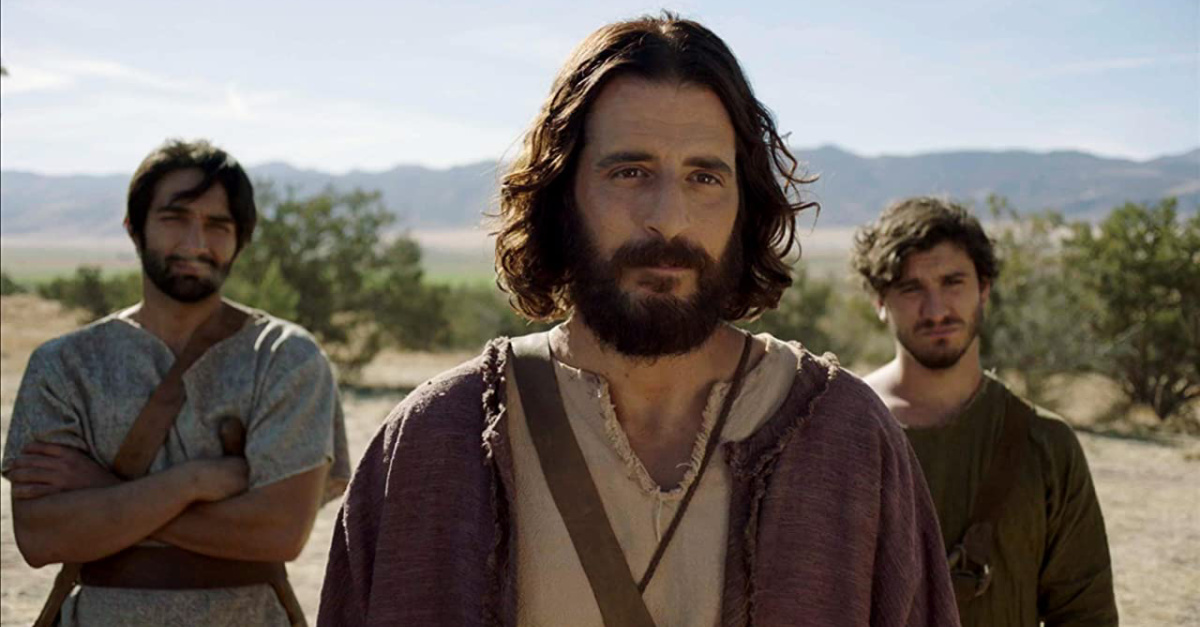
9. The Chosen (2017-Present)
Easily the most famous Bible TV show in recent years, The Chosen follows the Bible but takes a more inventive approach than most adaptations. Instead of trying to compete with the Visual Bible movies that directly quote the Bible, it starts by imagining what happened in between famous Bible encounters. Like the animated movie The Miracle Maker, the story begins by showing supporting characters (in this case, Nicodemus, the early disciples to join Jesus, and Mary Magdalene), giving viewers someone definitely human to empathize with. Once Jesus appears onscreen and starts changing these characters’ lives, viewers are surprised and fascinated by the results.
Slowly but surely, the characters grow into the mature believers that viewers remember from Sunday School, but it takes time. Following the trend since The Passion of the Christ, all the characters (Jesus included) look Middle Eastern, but The Chosen takes that subtext further by delving into their culture. Every character is on a complicated journey in which following their people’s laws, remembering their people’s history, and existing under Roman rule creates conflicts that may not be reconciliable. Each character handles these conflicts differently, and each finds meeting Jesus forces them to rethink their position. Since the show takes its time (season 2 ends as Jesus is preparing for the Sermon on the Mount), viewers get more immersed in these characters’ struggles, and the impact Jesus has on them, than in any other Bible TV show. A thoughtful, intelligent Bible TV that defies expectations in the best way.
Further Reading: 4 Things You Should Know about Season 3 of The Chosen
Photo Credit: ©The Chosen/Angel Studios

10. Dekalog (1988)
This TV show, directed and co-written by acclaimed Polish director Krzysztof Kieślowski, took an interesting approach to the Ten Commandments. Each episode is inspired by a commandment, while the story takes place in a Polish housing estate. Each episode was titled after a number. However, since Roman Catholics, Protestants, and other denominations order the ten commandments differently, the number doesn’t give away to which commandment the episode refers. Even when the episodes clearly fit a certain commandment, the plot cleverly handles its ideas. For example, an episode about a young man who kills a taxi driver is clearly about the commandment “thou shalt not kill,” but then the episode features authorities determining if the death penalty is appropriate for this crime. Where does “thou shalt not kill” end?
Kieślowski pushes readers to consider what the Bible truly commands in all its implications. Sometimes the stories are tragic, sometimes unexpectedly redemptive. Like much religious entertainment released in Eastern Europe during the Soviet Union, it often feels melancholic but has surprising redemptive ideas just beneath the surface.
Fans of this TV show may also enjoy Three Colors: Blue, a Kieślowski film that presents a nuanced but beautiful story about loss and redemption.
Further Reading: 20 Secular Movies with Christian Values
Photo Credit: Criterion
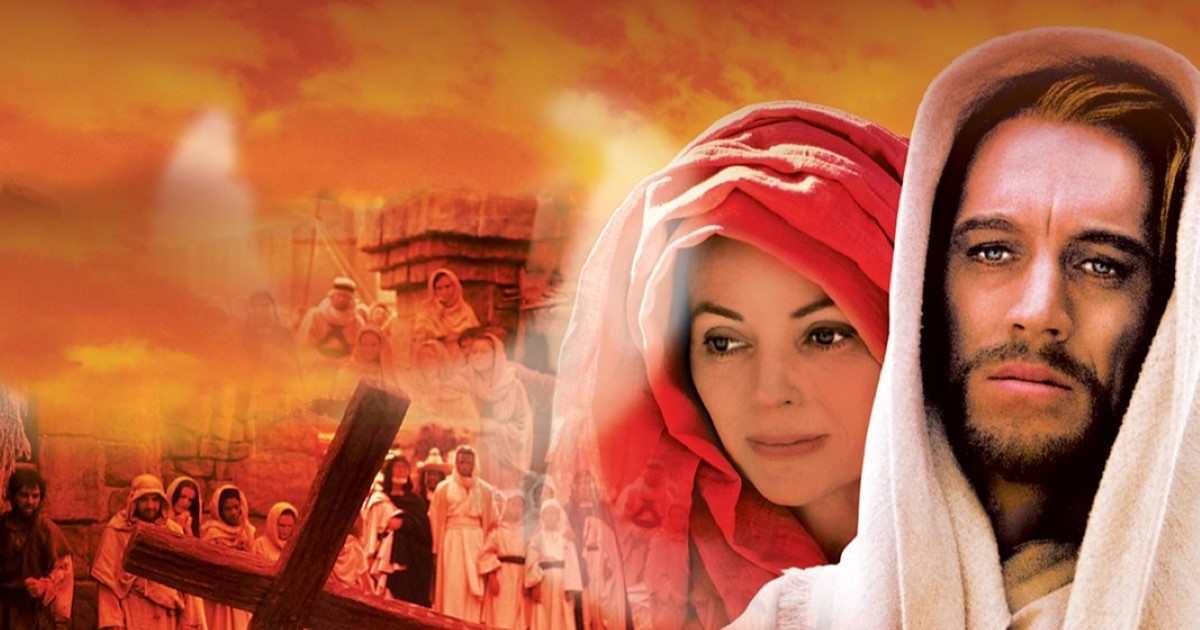
Honorary Mention: The Greatest Story Ever Told (1956)
Putting a classic Biblical epic on a list of TV shows may seem like a cheat. After all, it's not like the Visual Bible films, where the movie naturally feels like a long TV show. While The Greatest Story Ever Told has an epic structure that makes it slightly harder to stop and return to, the fact is it has always been a long film that was difficult to watch in one sitting. The first version was 260 minutes long, four minutes longer than The Visual Bible: Matthew and nine minutes longer than the extended version of Return of the King. There have been dozens of new edits to make the movie easier to watch, but even the most widely accessible version today is a little over three hours long. Hence, the chances are that if you’re watching The Greatest Story Ever Told, you are watching it like a TV show: with breaks, possibly over several days.
The Greatest Story Ever Told has some rough edges. Most of its celebrity cameos fit their roles, but one or two (like John Wayne as a centurion with an American drawl) feel clunky. Some of its ideas (like Satan lurking around the scenes on Good Friday) have been used by newer Jesus movies in more exciting ways. However, even today, few Jesus movies paint a more affectionate portrait of Jesus and the Gospel story. In 100 Bible Films, Matthew Page calls it perhaps “the most devout” Jesus movie ever made.
Further Reading: 10 Great Easter Movies about the Life of Jesus
Photo Credit: United Artists via Amazon
If you enjoyed this article, you may enjoy these other articles about Bible entertainment:
Top 10 Bible Movies of All Time
7 Excellent Bible Movies You've Likely Never Seen
10 Classic Moses Movies for Families
10 Popular Movies for Studying 10 Books of the Bible
Cover Photo Credit: ©The Chosen/Angel Studios, used with permission.

This article is part of our Bible resource for understanding the significance and meaning of biblical phrases and ideas. Here are our most popular Bible articles to grow in your knowledge of God's Word:
Promises of God in the Bible
Is "This Too Shall Pass" in the Bible?
What Was the Ark of the Covenant?
Top 10 Bible Stories for Kids
“Iron Sharpens Iron” in Proverbs 27:17
"Fearfully and Wonderfully Made" in Psalm 139
“Be Still and Know That I am God” in Psalm 46:10
"No Weapon Formed Against Me Shall Prosper" - Isaiah 54:17
